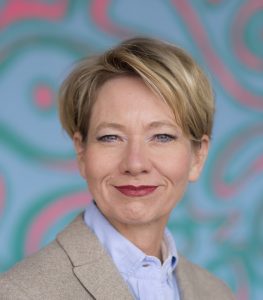As part of a series of international collaborative courses offered by the Social Sciences and Humanities Unit for the Kyoto University Top Global Course (AGST), the Division of Natural Resource Economics will hold an intensive lecture course entitled “Rural Sociology: Future Land-Rural Areas between Break-up and Left-behind” (Special Lecture on Natural Resources Economics IVB) , taught by Prof. Claudia Neu from the University of Göttingen, Germany on 13-16 February 2024.
[Course Title]
[Intensive, Second semester]
Special Lecture on Natural Resources Economics IVB (生物資源経済学特別講義IVB)(Code: FC06000)
“Rural Sociology: Future Land-Rural Areas between Break-up and Left-behind”
[Number of credits]
1 (one)
[Instructor]
Prof. Dr. Claudia Neu
Professor of Rural Sociology Department of Agricultural Economics and Rural Development University of Göttingen, Germany
[Schedule]
February 13 (Tue.) : 13:15- 14:45 (Lect. 1) & 15:00-16:30 (Lect. 2)
February 14 (Wed.): 13:15- 14:45 (Lect. 3) & 15:00-16:30 (Lect. 4)
February 15 (Thu.): 13:15- 14:45 (Lect. 5) & 15:00-16:30 (Lect. 6)
February 16 (Fri.): 13:15- 14:45 (Lect. 7) & 15:00-16:30 (Lect. 8)
※Note for M2 students who are scheduled to complete their Master’s degree program in March 2024:
You can earn one credit by successfully completing this intensive course. However, this one credit cannot be counted towards the minimum 30 credits required for completion of Master’s degree program because this course is scheduled to be held after the assessment process for M2 students’ completion of the Master’s degree program is complete.
[Course Format]
In-person at Room E217 of the Faculty/Graduate School of Agriculture Main Bldg.
Click here for a map of E217.
[Language]
English
[Overview and purpose of the course]
One of the primary objectives of this course is to introduce students to the principles of sociology in general and key concepts of rural sociology in particular. In addition, we want to provide the analytical tools for understanding the processes inherent to these concepts. Beyond that, the course aims at enhancing students’ ability to identify different research perspectives and to critically discuss and analyze research strategies and methods.
The approach will generally be a sociological analysis of the transformation of postmodern societies. This development is forced by demographic, economic and social change. Nowadays we observe a differentiation and polarization of rural wellbeing and lifestyle in Europe, the US and Japan. Therefore the theoretical and empirical focus lies on transformation theories, social inequality in general and territorial inequality in special.
[Syllabus & Flyer]
Please see Syllabus and Flyer for further information.
[Registration]
[For Academic Credit]: Registration on KULASIS is already closed.
[For Auditing (non-credit]:
Please register with Assistant Teaching Staff Mr. Makoto Kuroda by contacting him at:
kuroda.makoto.6a[at]kyoto-u.ac.jp (please replace [at] with @)
by February 6, 2024.
[Contact]
Makoto KURODA, Assistant Teaching Staff, Division of Natural Resource Economics, Graduate School of Agriculture
E-mail: kuroda.makoto.6a[at]kyoto-u.ac.jp (please replace [at] with @)
Extension: 6187



